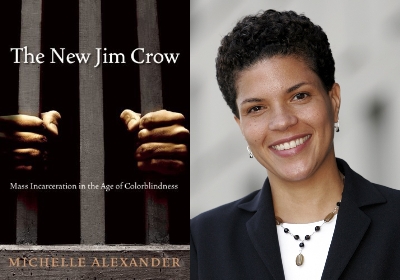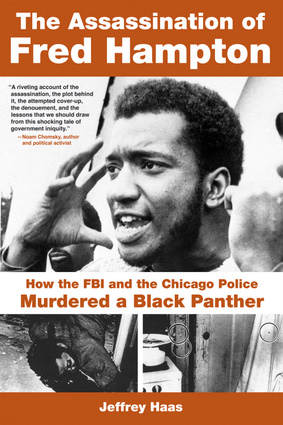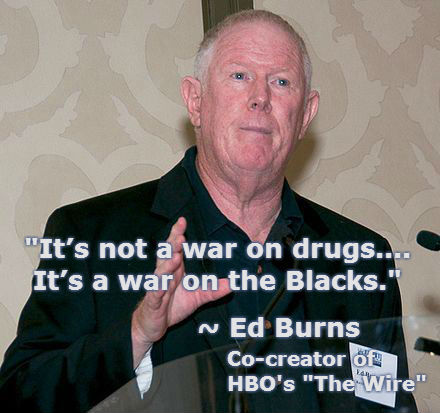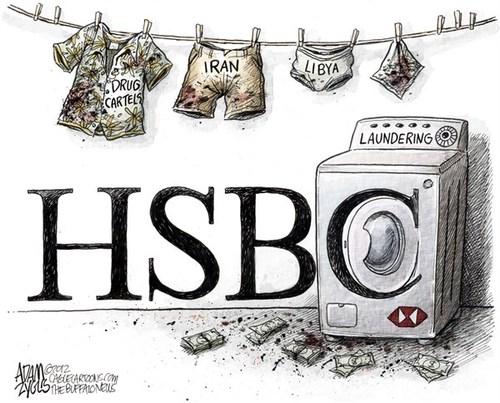The American criminal justice system holds almost 2.3 million people in 1,719 state prisons, 102 federal prisons, 1,852 juvenile correctional facilities, 3,163 local jails, and 80 Indian Country jails as well as in military prisons, immigration detention facilities, civil commitment centers, state psychiatric hospitals, and prisons in the U.S. territories.
Despite only making up about 5 percent of the global population, the United States has nearly 25 percent of the world’s prison population. Since 1970, our incarcerated population has increased by 700% – far outpacing population growth and crime.
One out of every three Black boys born today can expect to go to prison in his lifetime, as can one of every six Latino boys—compared to one of every 17 White boys. At the same time, women are the fastest growing incarcerated population in the United States.
There are twice as many people sitting in local jails awaiting trial and presumed innocent than in the entire federal prison system. And each year, 650,000 men and women nationwide return from prison to their communities. They face nearly 50,000 federal, state, and local legal restrictions that make it difficult to reintegrate back into society. According to Michelle Alexander, the author of The New Jim Crow:
If you take into account prisoners, a large majority of African American men in some urban areas, like Chicago, have been labeled felons for life. These men are part of a growing undercaste — not class, caste – a group of people who are permanently relegated, by law, to an inferior second-class status. They can be denied the right to vote, automatically excluded from juries, and legally discriminated against in employment, housing, access to education, and public benefits — much as their grandparents and great-grandparents once were during the Jim Crow era.
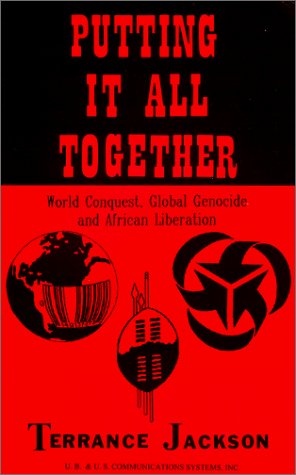 In 1991, I also wrote about mass incarceration in my book, Putting It All Together. In addition, I wrote about COINTELPRO and the assassination of Fred Hampton, the chairman of the Illinois chapter of the Black Panther Party (BPP). COINTELPRO (Portmanteau derived from COunter INTELligence PROgram) (1956–1971) was a series of covert, and at times illegal, projects conducted by the United States Federal Bureau of Investigation (FBI) aimed at surveilling, infiltrating, discrediting, and disrupting domestic political organizations. In Putting It All Together, I included a copy of the COINTELPRO FBI memo below.
In 1991, I also wrote about mass incarceration in my book, Putting It All Together. In addition, I wrote about COINTELPRO and the assassination of Fred Hampton, the chairman of the Illinois chapter of the Black Panther Party (BPP). COINTELPRO (Portmanteau derived from COunter INTELligence PROgram) (1956–1971) was a series of covert, and at times illegal, projects conducted by the United States Federal Bureau of Investigation (FBI) aimed at surveilling, infiltrating, discrediting, and disrupting domestic political organizations. In Putting It All Together, I included a copy of the COINTELPRO FBI memo below.Prevent the rise of a “messiah” who could unity and electrify, the militant black nationalist movement.
It’s not a crime to murder Black organizers in an operation run by the national political police.
~ Noam Chomsky
~ Noam Chomsky
Black Panther leader Fred Hampton was murdered by the Chicago police and the FBI.
It’s not a crime to murder Black organizers in an operation run by the national political police…. Just compare the coverage and the memory of just these two events, Watergate and the Hampton assassination, you learn a lot about the prevailing immortal and intellectual culture.
~ Noam Chomsky
We will revisit these topics in my new book DO THIS AND YOU WILL LIVE.
African American spirituality includes a tradition of Jesus from people who trusted in God to make a way out of no way.
And the beat goes on.
President Donald Trump announced on December 7, 2018 his plan to nominate William Barr as the next attorney general. Barr previously held the same role from 1991 to 1993 under President George H.W. Bush. If confirmed by the Senate, Barr would replace Matthew Whitaker, who was appointed by Trump as acting attorney general after Jeff Sessions resigned last month under pressure from the White House.
As attorney general, Sessions brought back a hardline approach to criminal justice, pushing for tougher penalties and ramping up the war on drugs. He had ordered federal prosecutors to pursue the toughest possible charges and sentences against crime suspects, reversing Obama administration efforts to ease penalties for some nonviolent drug violations.
There are strong indications that Barr would follow in Sessions’s footsteps. Last month, Barr co-authored an op-ed in the Washington Post that extensively praised Sessions’s criminal justice record. Barr applauded Sessions for restoring “police morale” by pushing back on the “Ferguson effect,” a myth about crime rates and policing that has consistently been disproved by criminologists.
And in 2015, Barr was part of a vocal minority, which included Senator Tom Cotton (R-Ark.), to oppose the Sentencing Reform and Corrections Act (SRCA), a bipartisan bill that would have modestly reduced sentences for federal non-violent drug convictions.
According to research by the Brennan Center, the United States has experienced a sharp decline in crime in the past two decades — and mass incarceration has contributed very little, if at all, to that decline.
Barr’s record suggests he might also be opposed to the FIRST STEP Act, the current bipartisan bill on criminal justice reform. If passed, the bill would shorten some unnecessarily long federal prison sentences and enforce rules that would improve conditions for people currently in prison. Barr’s potential opposition to the FIRST STEP Act would put him at odds with President Trump and the majority of Republicans in the Senate, who support the bill.
Of course, we cannont incapacitate these criminals unless we build sufficient prison and jail space to house them.
Barr’s previous stint as attorney general also included troubling positions on criminal justice issues. During his tenure in the Bush administration, Barr helped devise federal policies that furthered mass incarceration and the war on drugs. Notably, in 1992, he published a book by the Department of Justice called The Case for More Incarceration, which argued that the country was “incarcerating too few criminals.” After serving as attorney general, Barr led efforts in Virginia to abolish parole in the state, build more prisons, and increase prison sentences by as much as 700 percent.
To be sure, that was an era when tough criminal justice policies attracted support across the political spectrum. But Barr’s more recent record suggests, that unlike many in his party, his thinking hasn’t changed significantly since then, even as the failure of mass incarceration has become too glaring to ignore.
When the law is applied in the absence of legitimacy, it does not produce obedience. It produces the opposite. It leads to backlash.
Malcolm Gladwell’s David and Goliath:
[L]egitimacy is based on three things. First of all, the people who are asked to obey authority have to fell like they have a voice—that if they speak up, they will be heard. Second, the law has to be predictable. There has to be a reasonable expectation that the rules tomorrow are going to be roughly the same rules today. And third, the authority has to be fair. It can’t treat one group differently from another….[W]hen the law is applied in the absence of legitimacy, it does not produce obedience. It produces the opposite. It leads to backlash.
It’s not a war on drugs. Don’t ever think it’s a war on drugs. It’s a war on the Blacks. It started as a war on the Blacks, it’s now spread to Hispanics and poor Whites. But initially it was a war on Blacks. And it was designed basically to take that energy that was coming out of the Civil Rights Movement and destroy it.
~ Ed Burns
Co-creator of “The Wire”
According to an article by Avinash Tharoor, Bank of America, Western Union, and JP Morgan, are among the institutions allegedly involved in the drug trade. Meanwhile, HSBC has admitted its laundering role, and evaded criminal prosecution by paying a fine of almost $2 billion. The lack of imprisonment of any bankers involved is indicative of the hypocritical nature of the drug war; an individual selling a few grams of drugs can face decades in prison, while a group of people that tacitly allow — and profit from — the trade of tons, escape incarceration.
According to the Corporate Crime Reporter:
Corporate crime inflicts far more damage on society than all street crime combined.Whether in bodies or injuries or dollars lost, corporate crime and violence wins by a landslide.The FBI estimates, for example, that burglary and robbery – street crimes – costs the nation $3.8 billion a year.The losses from a handful of major corporate frauds – Tyco, Adelphia, Worldcom, Enron – swamp the losses from all street robberies and burglaries combined.Health care fraud alone costs Americans $100 billion to $400 billion a year.The savings and loan fraud – which former Attorney General Dick Thornburgh called “the biggest white collar swindle in history” – cost us anywhere from $300 billion to $500 billion.
The factories are not going to be here anymore. We don’t need these people so the least we can do is hunt them. And when we hurt them we at least provide jobs for cops, DEA agents, lawyers and prison guards.
~ David Simon
Co-creator of HBO’s The Wire



